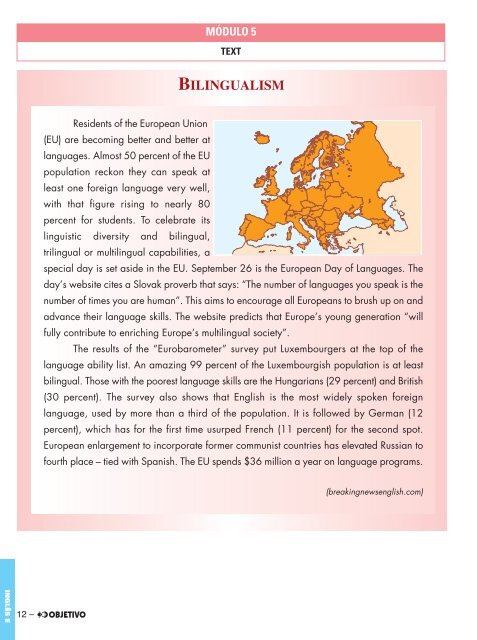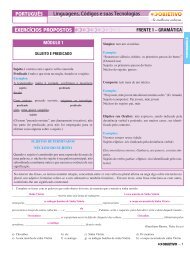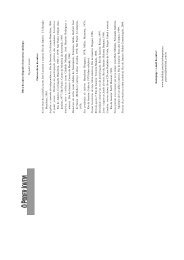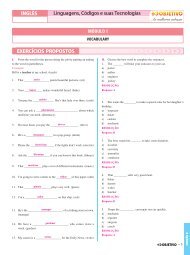1 - No-IP
1 - No-IP
1 - No-IP
You also want an ePaper? Increase the reach of your titles
YUMPU automatically turns print PDFs into web optimized ePapers that Google loves.
INGLÊS E<br />
12 –<br />
MÓDULO 5<br />
TEXT<br />
BILINGUALISM<br />
Residents of the European Union<br />
(EU) are becoming better and better at<br />
languages. Almost 50 percent of the EU<br />
population reckon they can speak at<br />
least one foreign language very well,<br />
with that figure rising to nearly 80<br />
percent for students. To celebrate its<br />
linguistic diversity and bilingual,<br />
trilingual or multilingual capabilities, a<br />
special day is set aside in the EU. September 26 is the European Day of Languages. The<br />
day’s website cites a Slovak proverb that says: “The number of languages you speak is the<br />
number of times you are human”. This aims to encourage all Europeans to brush up on and<br />
advance their language skills. The website predicts that Europe’s young generation “will<br />
fully contribute to enriching Europe’s multilingual society”.<br />
The results of the “Eurobarometer” survey put Luxembourgers at the top of the<br />
language ability list. An amazing 99 percent of the Luxembourgish population is at least<br />
bilingual. Those with the poorest language skills are the Hungarians (29 percent) and British<br />
(30 percent). The survey also shows that English is the most widely spoken foreign<br />
language, used by more than a third of the population. It is followed by German (12<br />
percent), which has for the first time usurped French (11 percent) for the second spot.<br />
European enlargement to incorporate former communist countries has elevated Russian to<br />
fourth place – tied with Spanish. The EU spends $36 million a year on language programs.<br />
(breakingnewsenglish.com)









